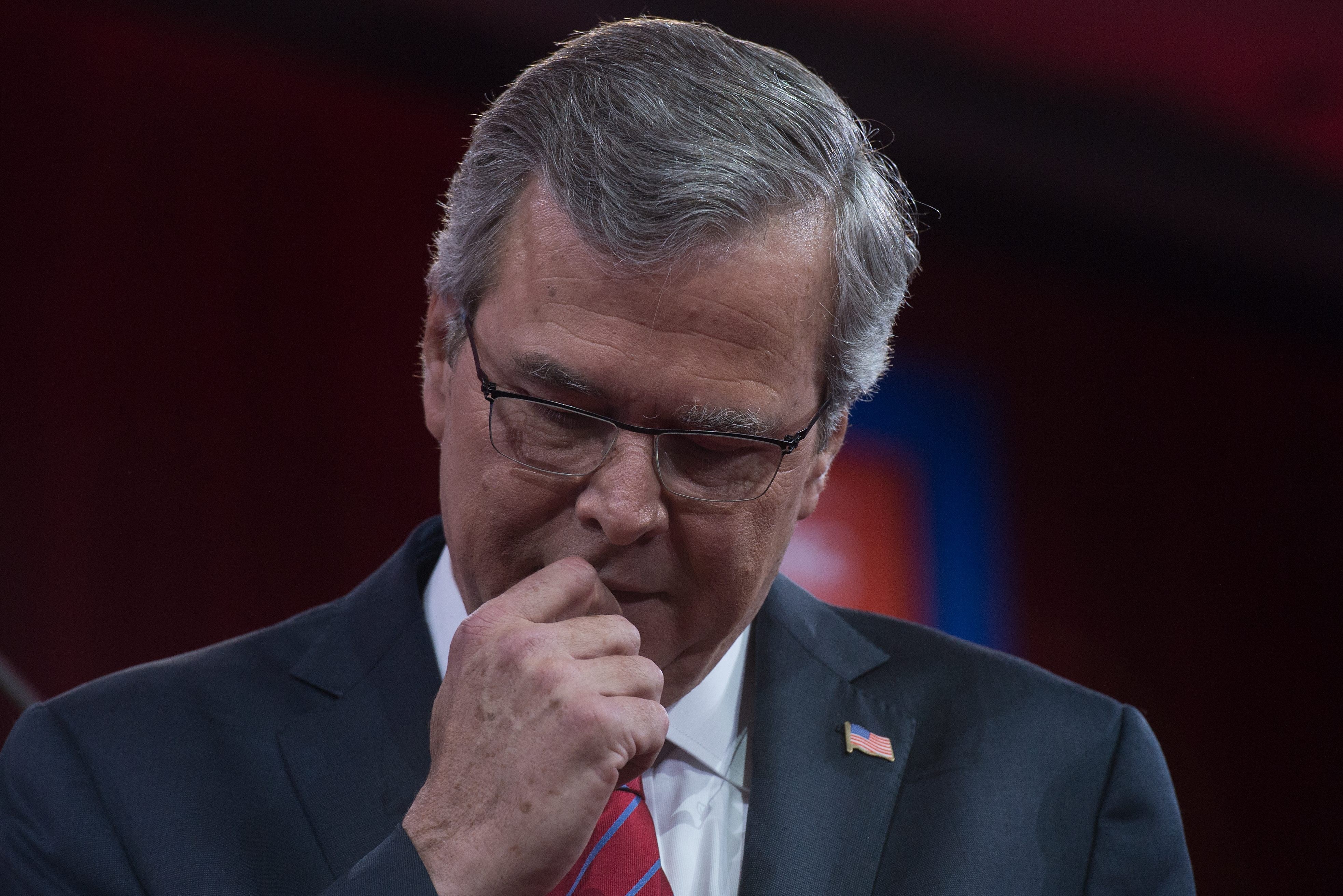National Review analysis: Jeb Bush 'has almost no chance of being the GOP nominee'


A free daily email with the biggest news stories of the day – and the best features from TheWeek.com
You are now subscribed
Your newsletter sign-up was successful
In a fascinating analysis at the conservative magazine National Review, Lawrence Brinton, a pseudonym for a political operative who has supposedly "informally advised several 2016 campaigns," lays out a compelling case that establishment favorite Jeb Bush has "almost no chance" of winning the 2016 Republican nomination. Brinton bases his analysis on Bush's third-quarter fundraising numbers, which show that the cash for his campaign comes overwhelmingly from major donors — indicating a lack of support from grassroots voters who are not only necessary to build enthusiasm for a campaign, but who also in recent election cycles have become a financial force in their own right.
Brinton's analysis is damning. The ratio of Bush's big-donor and small-donor amounts is a wildly unbalanced 15:1, comparing unfavorably to Hillary Clinton (3:1), Marco Rubio (1.7:1), Ted Cruz (1:1.6), and Republican frontrunner Donald Trump (1:6.5). (As Brinton notes, Trump has not even been an active fund-raiser, and would likely be an attractive candidate to both major donors and small donors.) Bush even trails Mitt Romney at this stage of the 2008 election cycle, with the former private equity titan boasting a healthier 7:1 ratio. George W. Bush had a 12:1 ratio at this stage of the 2000 race, but Brinton argues that he was competitive in the small donor range and dominant in the middle donor range, whereas Jeb is very weak in both areas.
Based on historical patterns, Brinton concludes that "Jeb Bush cannot win." He adds, "No candidate has ever won the nomination with such a heavy reliance on big donors, even at a time when big-donor money made up a much larger percentage of total fundraising." Brinton says that the candidate in the best position to win is Cruz, and that Rubio, Carly Fiorina, and Trump are also in the mix.
The Week
Escape your echo chamber. Get the facts behind the news, plus analysis from multiple perspectives.

Sign up for The Week's Free Newsletters
From our morning news briefing to a weekly Good News Newsletter, get the best of The Week delivered directly to your inbox.
From our morning news briefing to a weekly Good News Newsletter, get the best of The Week delivered directly to your inbox.
Read the entire analysis at National Review.
A free daily email with the biggest news stories of the day – and the best features from TheWeek.com
Ryu Spaeth is deputy editor at TheWeek.com. Follow him on Twitter.
-
 Corruption: The spy sheikh and the president
Corruption: The spy sheikh and the presidentFeature Trump is at the center of another scandal
-
 Putin’s shadow war
Putin’s shadow warFeature The Kremlin is waging a campaign of sabotage and subversion against Ukraine’s allies in the West
-
 Media: Why did Bezos gut ‘The Washington Post’?
Media: Why did Bezos gut ‘The Washington Post’?Feature Possibilities include to curry favor with Trump or to try to end financial losses
-
 Judge orders Washington slavery exhibit restored
Judge orders Washington slavery exhibit restoredSpeed Read The Trump administration took down displays about slavery at the President’s House Site in Philadelphia
-
 Hyatt chair joins growing list of Epstein files losers
Hyatt chair joins growing list of Epstein files losersSpeed Read Thomas Pritzker stepped down as executive chair of the Hyatt Hotels Corporation over his ties with Jeffrey Epstein and Ghislaine Maxwell
-
 Judge blocks Hegseth from punishing Kelly over video
Judge blocks Hegseth from punishing Kelly over videoSpeed Read Defense Secretary Pete Hegseth pushed for the senator to be demoted over a video in which he reminds military officials they should refuse illegal orders
-
 Trump’s EPA kills legal basis for federal climate policy
Trump’s EPA kills legal basis for federal climate policySpeed Read The government’s authority to regulate several planet-warming pollutants has been repealed
-
 House votes to end Trump’s Canada tariffs
House votes to end Trump’s Canada tariffsSpeed Read Six Republicans joined with Democrats to repeal the president’s tariffs
-
 Bondi, Democrats clash over Epstein in hearing
Bondi, Democrats clash over Epstein in hearingSpeed Read Attorney General Pam Bondi ignored survivors of convicted sex offender Jeffrey Epstein and demanded that Democrats apologize to Trump
-
 El Paso airspace closure tied to FAA-Pentagon standoff
El Paso airspace closure tied to FAA-Pentagon standoffSpeed Read The closure in the Texas border city stemmed from disagreements between the Federal Aviation Administration and Pentagon officials over drone-related tests
-
 Judge blocks Trump suit for Michigan voter rolls
Judge blocks Trump suit for Michigan voter rollsSpeed Read A Trump-appointed federal judge rejected the administration’s demand for voters’ personal data